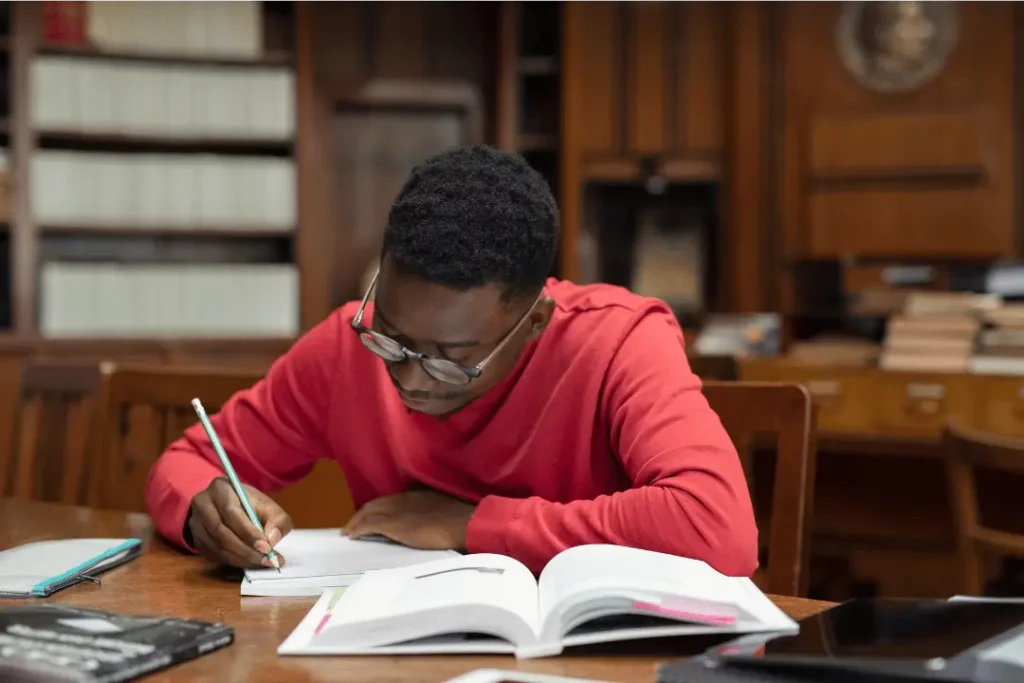
Congratulations! You’ve reached the end of your Common App personal statement…or you’re thinking about the end of your personal statement, and that’s still a cause for celebration.
Consider your favorite show, film, or book—how did you feel when it ended? Perhaps you were sad because you had spent so much time with the characters that they felt like close friends, or maybe you were angry at a disappointing conclusion that left more questions than answers.
Whether we like it or not, a conclusion, good or bad, can change how we feel about a piece of media. It’s just as important as your introduction, and maybe even more important since it’s the last thing your reader will read. In this blog post, we’ll explore how to end a college essay to make a lasting impression.
Why Is the Ending Important?
When friends ask me for book or movie recommendations, I always start with the ending. “You have to watch it, the ending was so heartwarming!” I say, or, more often than not, “Don’t watch it—the ending didn’t make any sense.”
Endings have huge cultural staying power and can even change the audience’s perception of the entire work. You don’t want to unravel your tightly wound story with a loose ending!
And they lived happily ever after.
This ending may be unforgettable but for the wrong reasons. Your life is not a fairy tale, so your essay can’t have such a boring, basic conclusion. The ending to your college essay should be rich with nuance and insight.
To make a lasting impression on the reader, your conclusion should push boundaries, following the reader long after they finish reading your college essay. The end of your college essay should satisfy the reader, tying up loose ends, but a good conclusion is also active, not passive. A good ending to your college essay asks and answers the question, “What’s the point?” Why did the reader just read a 650-word story about you?
Your conclusion is, in many ways, a gift to the reader. It’s the dessert after a long meal—it completes their reading experience and makes everything that came before it worth it.
Common Mistakes to Avoid
Before we explore the different ways to end a college essay, let’s discuss what not to do.
The biggest mistake students make when crafting an end to their college essay is not taking the conclusion seriously.
In essays you’ve written for class, you may have been encouraged to restate your thesis in the conclusion. While that’s a good strategy for an informative essay, a college personal essay is very different. Your college essay may not even have a clear thesis statement, and that’s okay.
You should not summarize your essay in your conclusion either. A pointed summary of all the main points of your college essay may seem memorable, but it lacks creativity and can seem as though you’re talking down to the reader. A good ending introduces a new part of the essay, so it should stand out while remaining cohesive.
How to End a College Essay

If you want your essay to capture attention and resonate with the reader, follow these six strategies for ending a college essay.
Reflect
While you should be reflecting throughout your essay, a great way to tie together any themes or lessons learned is by reflecting on your values or beliefs at the end of the essay. Have they changed since the beginning of the story by growing stronger, maybe even weaker as you’ve gained more knowledge?
It’s important to note that reflection is not summary—you’re introducing a new way of looking at your story in the conclusion. In a way, reflection is the analysis of your story.
Reflection is a great way to show maturity and growth. While you’ll likely grow and mature even more throughout college, reflecting on your experiences shows a thoughtfulness conducive to a college education.
Callback
If you’ve ever seen a stand-up comedian perform, then you know that sometimes they reference earlier jokes later in the set. A “callback” can seem like an inside joke between the comedian and audience, creating familiarity between performer and spectator.
Let’s look at the essay introduction imagined in the article, “How to Write a Good Essay Hook.”
“Yuck!” I yelled as the pigeon pooped on my head.
It’s safe to assume this essay will be, in part, about overcoming challenges or adversity. So, how should it end? To match the humor of the introduction, a callback can be utilized to end this college essay.
The best advice I ever received was to stay positive. Keep looking up, because if anything, you’ll see the pigeon before it poops!
While this essay is very humorous, your essay doesn’t have to be funny to use a callback.
Rescue Your Cliffhanger
It may be self explanatory, but if you started your essay with a cliffhanger, you’ll have to return to it at the end, saving whatever you left dangling in a move that will leave the reader both relieved, satisfied, and maybe even a little surprised.
Ending your essay in a scene is also an active way to leave a memorable impression on the reader.

Look Ahead
You’ve experienced a lot so far, but there is still so much for you to discover. Readers of your essay know that your big journey is just beginning, so don’t be afraid to end your essay looking toward the future. Especially if your essay is about overcoming a challenge, you’ll want to end on a positive note as you look out toward your potential.
Just as you’re reflecting inward, look outward at the world around you. What’s next for you? Show the reader that your story is only ending on paper.
Dream Big
When writing the perfect college essay, the stakes can feel overwhelming. Applying to colleges is a serious undertaking, but that doesn’t mean that you can’t allow yourself to feel excited! You’re going to college, and you’re going to do big things when you’re there, and beyond.
While you’ll likely have a chance to write about your career aspirations in one of the many short answer supplemental essays colleges require, your college essay can be a great way for you to write about your hopes and dreams. Especially if you’re writing about your identity, background, or talents, ending on your dreams can leave the reader with a memorable and heartwarming message.
Surprise Twist!
M. Night Shyamalan: You either love his twist endings…or you loathe them. I won’t tell you how to watch movies, but when it comes to writing, I can assure you that a surprise twist can make your college essay impossible to forget.
It should be said that this can be one of the hardest endings to get right, and it definitely depends upon the way you’ve structured your essay. But if your essay is pretty conventional, a surprise twist can take your college essay to the next level.
Think of your twist ending as more of a pivot into a new direction. It’s important not to stray too far from the topic of the essay—you don’t want a disjointed essay—but surprise twists can be a great way to ensure your essay doesn’t fall victim to trope.
For example, maybe your essay is about becoming a more adventurous cook, but in the end, you end up burning Thanksgiving dinner! Things didn’t go as expected, but through this journey, you learned what truly matters is family…and takeout food.
Life is full of twists and turns, and if you can work one into your essay, you may just take the right path toward your dream school.
Conclusion
While the end of a college essay is only one part of it, it has the ability to the define the essay, so it’s important to take it seriously and write a creative ending that satisfies the reader while leaving a lasting impression. It’s not enough to simply start the race, you have to finish strong to secure your victory. One of these six strategies can help you end your college essay, ensuring that your college essay is unforgettable.








